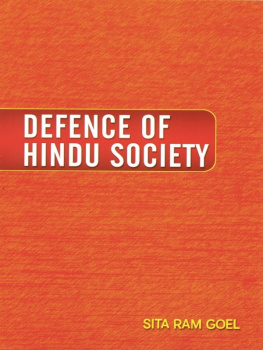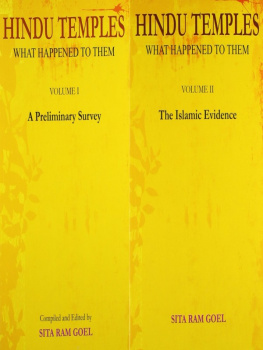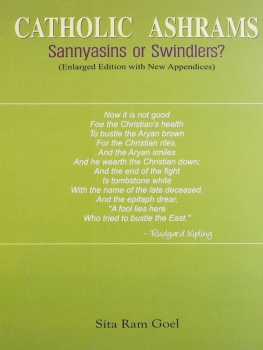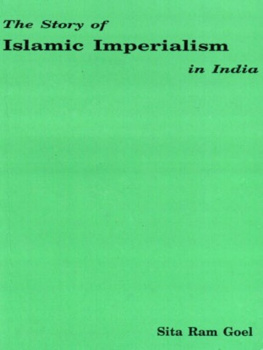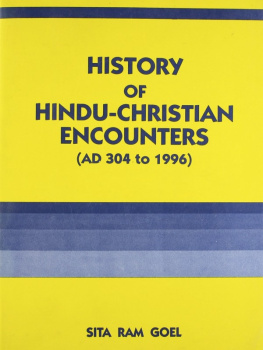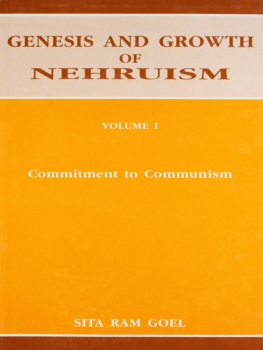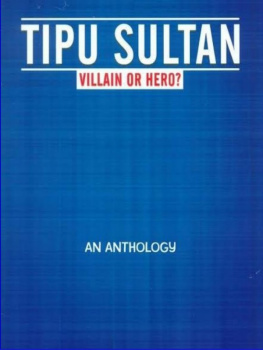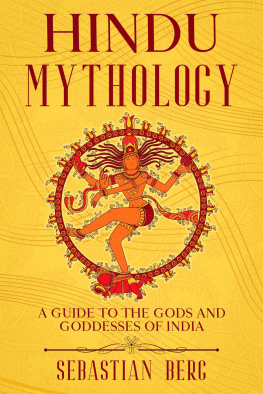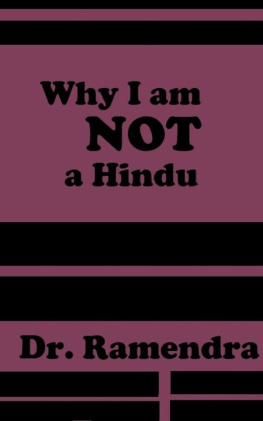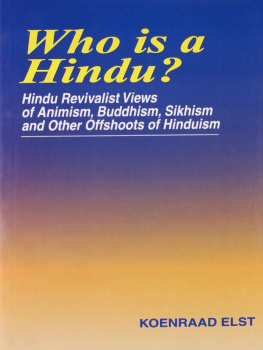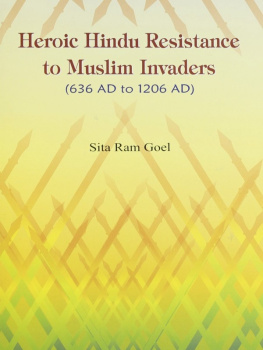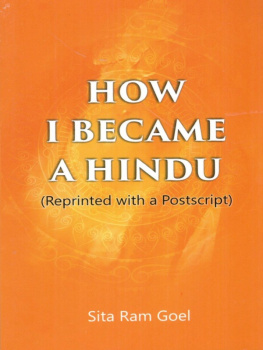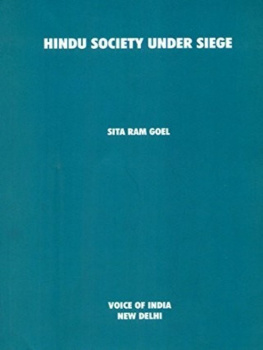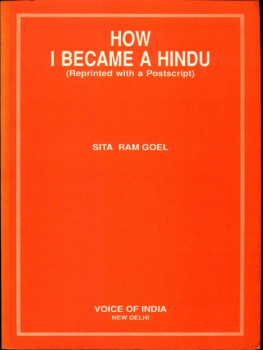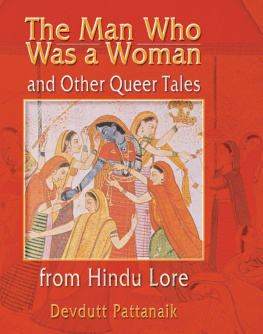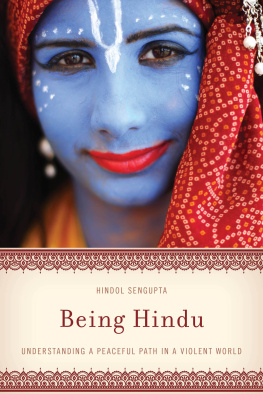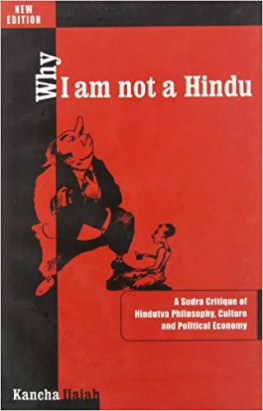1. The Situation at Present
In an earlier series, Hindu Society under Siege, I had dealt with the forces which threaten Hindu society, and are striving to throttle it out of existence with aid and abetment from their international allies.
I undertook, at that time, to write another series regarding the steps which Hindu society should take in order to break out of the siege, and snatch the initiative from its sworn enemies.
I have delayed this second series deliberately. Firstly, I wanted to watch and weigh the reactions from the readers of the first series. Secondly, the more I thought over the subject, the more diffident I grew about my own competence to deal with it adequately.
The response from the readers has been positive. I have received many letters of appreciation from Hindus residing in all parts of the country as well as abroad, and belonging to all sections of society and age groups. Most of them have congratulated me for articulating, in clear and concrete terms, what they themselves have felt instinctively and for a long time.
A few scholars and journalists who have never been known for their sympathy for Hinduism or Hindu causes have, however, remarked caustically that I have failed to frighten them. Some other birds of the same feather have dived deeper and referred to my mentality rather than refute my facts or demolish my logic.
It was far from my intention to frighten any one, far less the Hindu society which I aspire to serve. But our hand-to-mouth scholars and journalists have only a number of shibboleths up their sleeves. If one says that some events and trends are pregnant with bright possibilities, they dismiss him as a dreamer. On the other hand, if one draws attention to dangers that are maturing, they attack him as an alarmist. What they always refuse to do is to join a serious debate on any subject. And yet they strut around with superior airs as if they know all the answers. Most of the time these superior airs hide only stark ignorance, mental sloth, and moral indifference. I will not, therefore, enter into an argument with this tribe.
MY DIFFIDENCE
My diffidence, however, is an altogether different matter. Defence of a living and complex entity like a society is no easy task. It needs a sure touch which has to be sympathetic at the same time. A defence which does not take into account the spiritual, moral, and cultural aspirations embodied in and expressed by a society, can endanger rather than energize it.
This diffidence is doubly warranted in the case of a vast and variegated society such as the Hindu society, the like of which has been seen only rarely in human history, at least not on this scale. It is perhaps presumptuous on my part to deal with a subject which can be handled adequately and wholesomely only by sages, seers, saints, and visionaries. At the end of this exercise, I may only prove the old adage that fools rush in where angels fear to tread.
Hindu society has grown and shaped itself in the vision of Vyasa and Valmiki, Manu and Yajnavalkya, Narada and Vasistha, and a hundred other exponents of Santana Dharma in all its dimensions and dynamics.
Hindu society has been inspired through the ages by such mighty tras as the Vedas, the Upanishads, the Gita, the Jaingama, the TripiTaka, the various Yogastras, the VN of Siddhas and Sants, and the devotional outpourings of Alvars and Nayanars.
Hindu society has been defended, during its days of distress, by such high-souled heroes as Chandragupta, Skandagupta, Vikramaditya, Yasodharman, Bapa Rawal, Jayapala, Bhojadeva, Prithiviraj, Prataparudra, Vir Pandya, Harihara and Rana Sanga.
Hindu society has fought a long-drawn-out struggle for freedom against Islamic invaders under the leadership of such veterans as Maharana Pratap, Shivaji, Maharaja Surajmal, Banda Bairagi, Lokmanya Tilak, Veer Savarkar, Mahatma Gandhi, and Sardar Patel.
Hindu society has been reawakened and reformed by such visionaries as Bankim Chandra, Maharshi Dayananda, Swami Vivekananda, Sri Aurobindo, Rabindranath, and Subramanya Bharati.
It is small wonder, therefore, that I feel like an intruder in this august field. No one is more aware than myself of the limitations of head and heart from which I suffer. Adapting a metaphor from Kalidasa, I can state my case in the following loka:
kva dharma-prabhavah tantrah,kva ca alpa-viSay-matih,titrSuh dustaram mohd,uDupena asmi sgaram.(I am a small mind when it comes to understanding the social system which has been shaped by Dharma; It is only in a fit of folly that I am attempting to cross the great ocean by means of a ramshackle raft.)
BUT MY HEART BLEEDS
But my heart bleeds when I see this great society being attacked by sheer barbarians whose only weapon is either a criminal theology masquerading as religion, or a materialist dogma sustained by the lowest in human nature, or a phoney modernism parroting the latest slogans from the West. My mind is deeply disturbed when I witness the leaders of this great society going on the defensive in the face of wanton aggression from inhuman ideologies whose only stock in-trade is self-righteous spite.
I fail to understand the selective journalism which spotlights only the atrocities on Harijans when statistics go to show that caste Hindus provide many more victims to violence in our countryside, which plays up only stories of bride-burning without caring to find out what is happening to old parents in many modern homes under the spell of an imported culture which places a premium on what is described as youth, which accuses Hindu organisations of aggression in every communal strife without investigating the hard facts about provocation from the so-called minorities, and which, in short, replaces serious debate on every subject with a few mindless cliches - reactionary and progressive, right and left, capitalist and socialist, revivalist and modern, communal and secular, and so on.
OPENNESS OF HINDU SOCIETY
History stands witness that Hindu society has never refused to listen to those of its critics who have had the good of this society at heart. This society has always accepted every well-intentioned advice, and tried its best to reform and renew itself. This society has always hanged its head in shame before every well-deserved reprimand, and done a penance in good time, provided the reprimand has come from those whose credentials are not in doubt.
Hindu society has never been a closed society which catches cold at the very first whiff of a wind from outside. It has never been a fundamentalist fraternity parroting the pontifications of self-appointed prophets, or burning the entire incense of its reverence at the altar of ridiculous revelations, or ruling out every rational and reflective discussion of its dogmas. It has never been a regimented flock grovelling in an orgy of sinfulness which can be washed only by the blood of Gods only-begotten son, or waiting helplessly for fiats from Gods viceregent on earth.
On the contrary, Hindu society has been the meeting point as well as the melting pot of as many spiritual visions as the human psyche is capable of springing up spontaneously. It has been a willing and welcoming platform for as many seers, sages, saints, and mystics as have responded to the deeper stirrings in the human soul. It has been a repository of as many metaphysical points of view as human reason can render in human language. And it has been a vast laboratory for as many cultural, social, economic, and political experiments as human nature in its widest range can carry out and cope with.
A PAINFUL SIGHT
It is, therefore, a painful sight that the spokesmen of some puny and petrified ideologies should be pointing accusing fingers at Hindu society, and that this society should fail to muster sufficient self-confidence to repel the attack. Hindu society never tries to tick them off in good time with the stem warning they fully deserve. It has never asked them, Who the hell are you? It has never told them, Go and get lost or, better still, do a bit of introspection. You are blind with beams in both your eyes, and yet you have the cheek to raise a hue and cry about a mere mote in one of mine. Here is some sound advice for you. Stop telling lies about me, lest I be forced to tell the truth about you.

